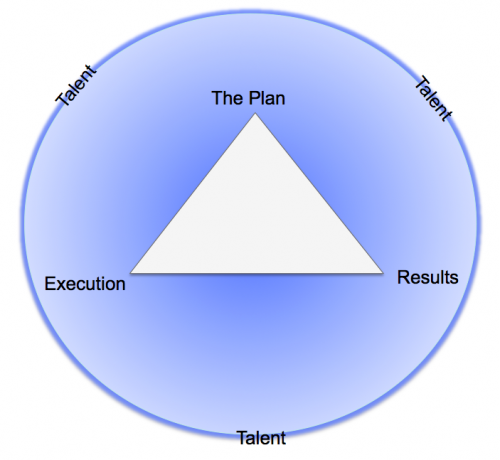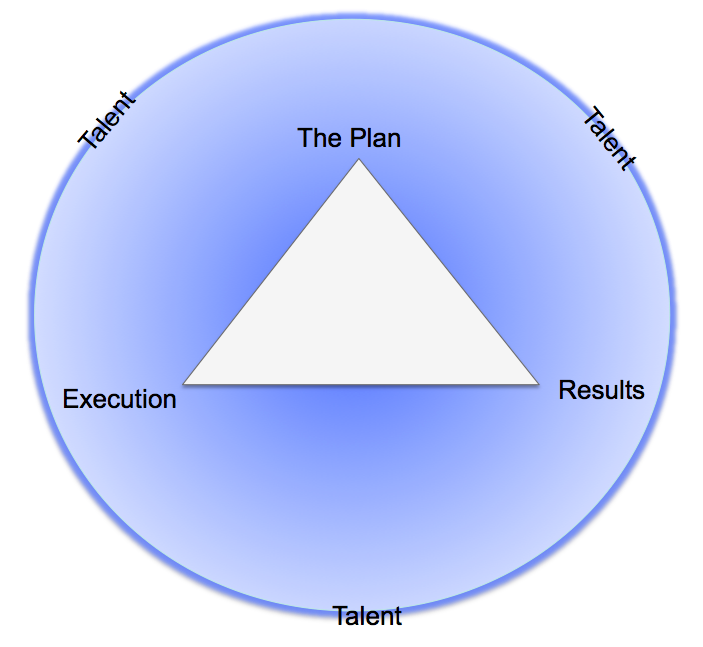I see this far too often. Sales managers and sales leaders reactively manage their people. They reactively manage because they to manage to results. Results are a trailing indicator in sales. If you manage to results your too late.
It’s a common approach in sales. The sales rep misses quota. The manager says that’s not good, don’t miss quota again. The rep misses quota again, the manager puts him on a PIP (performance improvement plan), which in essence lays out goals the rep must meet in the next 30 to 60 days or be fired. In the less agressive scenerios like this, the manager works with the rep to figure out what is wrong but even then it’s still being reactive.
I have always felt this is a bad way to manage and lead sales teams, yet it has staying power and seems to be the course of action for most organziations.
Being reactive does little for anyone. The key is to be proactive. Like most things in life getting ahead of the problems or preventing them entirely is far better than trying to fix them. The key is find the leading indicators of failure.
To find the leading indicators I break down sales management into 4 integrated categories; planning, execution, results and talent.

Failure and poor performance can and will be seen early in any and all of these categories. They are a barometer for failure or success.
If a poor plan is put in place, failure is imminent even if it’s executed well by a talented sales person. – Manage the plan.
If a great plan is in place but is executed poorly by a talented person, failure is just around the corner. – Manage execution.
If the sales person lacks the skill or talent a good plan won’t make a difference. – Manage talent
If it’s a poor plan, executed poorly by someone with out the talent you’re screwed. – Manage all three.
If it’s a great plan, executed brilliantly, by a talented sales rep and the results aren’t there, you’ve messed up somewhere. – See 1, 2, or 3. The problem is there.
Proactive management requires a process that embraces and monitors all the critical elements to sales delivery.
My management process works like this;
1) Everyone on my team builds a yearly plan. They share it with the entire team, peers and all. We cut it up, attack it, challenge it, and rework it until its a solid plan. Plans go through a rigorous evaluation process to ensure they’re sound.
2) I focus on execution. Plans are reviewed every quarter asking the following questions: what did you say you would do, what did you do, what did you learn, what are you going to do next quarter. The process ensures proper execution by evaluating WHAT a rep is doing and HOW they are executing to the plan. This allows problems to be identified early and changes made on the front end.
3) I hire for talent, and coach. The most important aspect of proactive management is talent. I hire for talent and I coach them. I have standing one on one meetings every 6 weeks with all of my direct reports. During these sessions we talk about what they do well, what they need to improve on and what they need to stop doing. These are not performance reviews. They are coaching sessions, designed to help them grow as a sales person and as a leader.
A process that embraces all of these elements is proactive. Problems are seen early and symptoms are separated from root cause.
Getting poor results with proactive management is almost impossible. You see it coming long before the boat sinks. It gives you time to course correct, limit the damage or turn things around.
If your results aren’t there, if the numbers are off, if quota is in jeopardy it’s one of 3 things; a bad plan, poor execution or lack of talent. Quick can you tell me which it is? How do you know?
Related articles by Zemanta
- Guest Post: Why Are 50% of Sales Reps Missing Their Sales Quota? (thecustomercollective.com)
- Hoover’s Webinar to Reveal Top Tips for Hiring and Managing Sales Teams – “Prospecting and Territory Development Best Practices” (eon.businesswire.com)
- CEO Guide to Sales Management – Introduction (frontofficebox.com)


